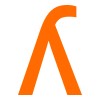Web-Based Treatment for Aphasia (Web-ORLA)
Aphasia

About this trial
This is an interventional treatment trial for Aphasia focused on measuring Aphasia, Stroke, Rehabilitation, Computer
Eligibility Criteria
Inclusion Criteria:
- men or women with diagnosis of an aphasia subsequent to a left-hemisphere infarct(s) that is confirmed by CT scan or MRI
- an Aphasia Quotient score on the Western Aphasia Battery of 20-80.
- > 6 months post injury
- completed at least an eighth grade education
- premorbidly literate in English
- sufficient auditory and visual acuity to interact with a laptop
- not receiving other speech/language treatment for at least one month prior to or during the study.
Exclusion Criteria:
- any other neurological condition (other than cerebral vascular disease) that could potentially affect cognition or speech, such as Parkinson's Disease, Alzheimer's Dementia, traumatic brain injury.
- any significant psychiatric history prior to the stroke, such as severe major depression or psychotic disorder requiring hospitalization; subjects with mood disorders who are currently stable on treatment will be considered.
- active substance abuse.
Sites / Locations
Arms of the Study
Arm 1
Arm 2
Experimental
Placebo Comparator
Web-ORLA
Control
Administered 90 minutes a day, six days a week ( i.e. nine hours of computer treatment per week) for a total of six weeks. The participant is presented with 3-5 word (level 1) or 8-10 word (level 2) sentences, depending upon the severity of the aphasia. Each sentence is chosen by the software program at random from a group of 150 sentences. The participant is instructed to look, listen, and point to words spoken by the virtual therapist, read highlighted words aloud, and then read the sentence aloud, both chorally with the virtual therapist and independently.
Administered 90 minutes a day, six days a week ( i.e. nine hours of computer treatment per week) for a total of six weeks. A commercially available game, Bejeweled 2, by PopCap. Participants use loaned 13-in laptop computers to access the Bejeweled interface, which displays an 8 X 8 grid of gems of varying shapes and colors. The objective is to match three gems of the same color and shape to score points and advance to more difficult levels.
Outcomes
Primary Outcome Measures
Secondary Outcome Measures
Full Information
1. Study Identification
2. Study Status
3. Sponsor/Collaborators
4. Oversight
5. Study Description
6. Conditions and Keywords
7. Study Design
8. Arms, Groups, and Interventions
10. Eligibility
12. IPD Sharing Statement
Learn more about this trial
